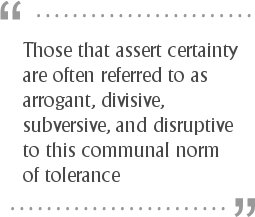By percentage, how many of the books you read and works you consulted in the last year were written before 1900?
Poll Results
By percentage, how many of the books you read and works you consulted in the last year were written before 1900?
None Votes: 1
Some, but less than 25% Votes: 15
Between 25% and 50% Votes: 9
Between 51% and 75% Votes: 3
Over 75% Votes: 0
 Republished with permission from
Republished with permission from
Discussion